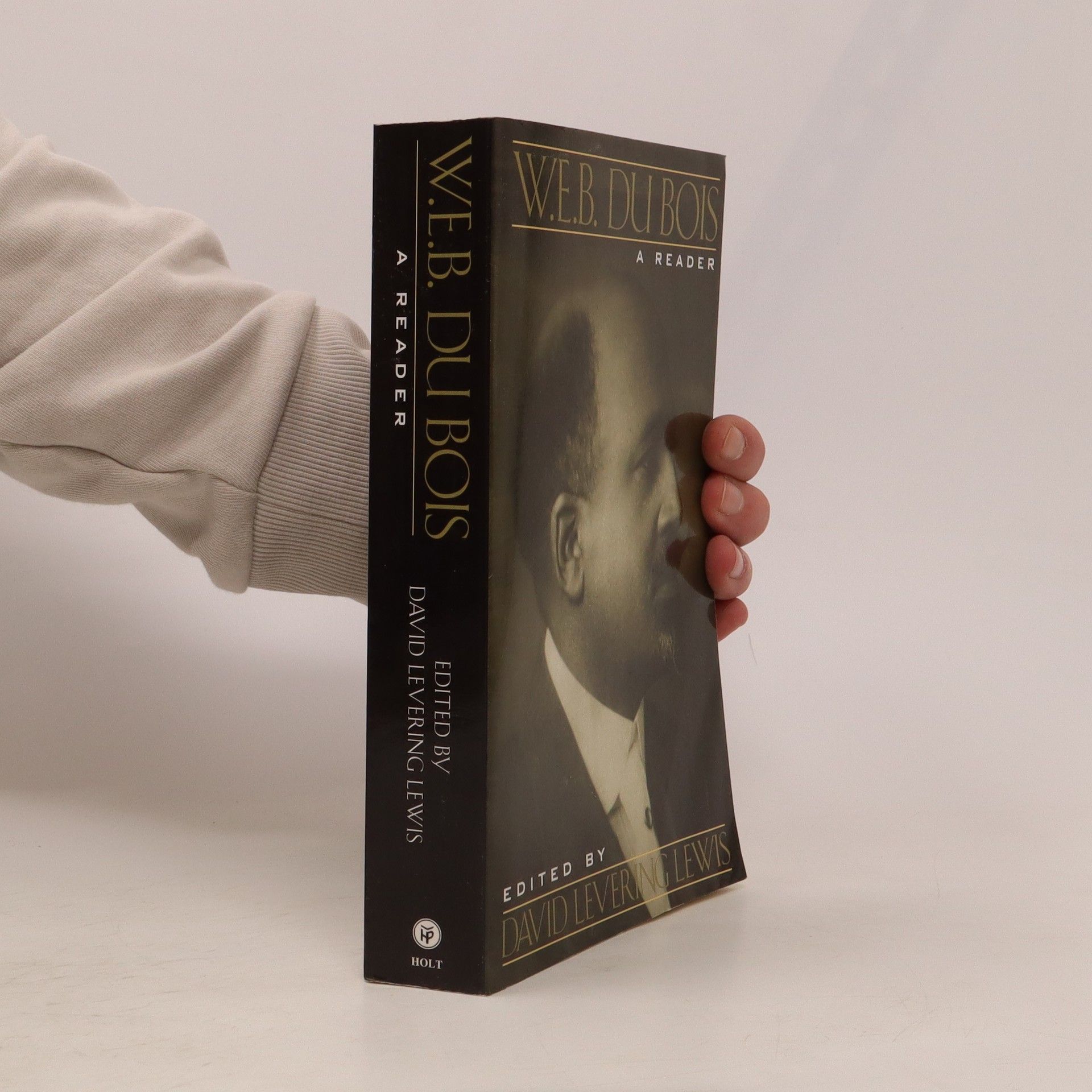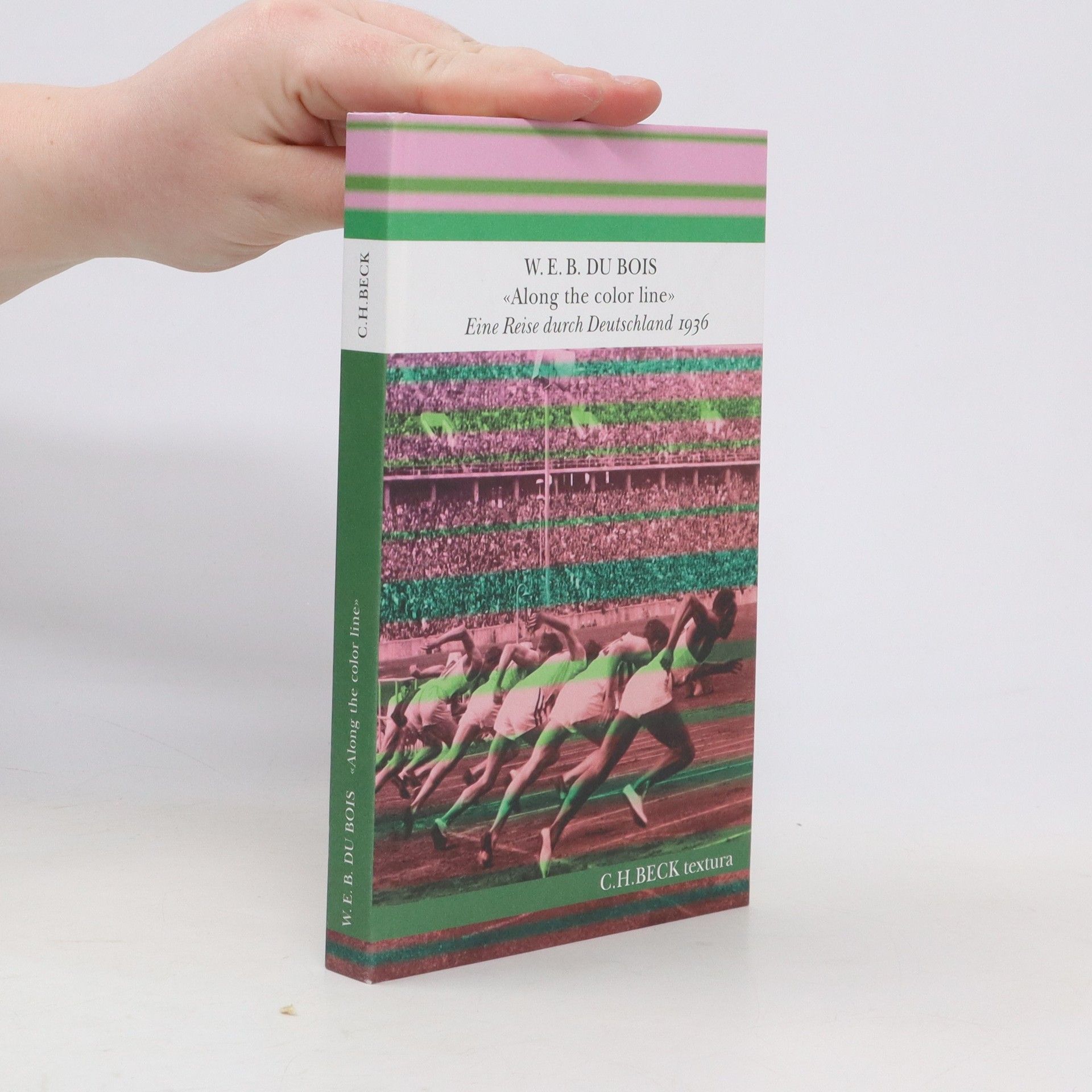Focusing on the 19th-century struggles of women, particularly African American women, this essay by W. E. B. du Bois examines the complex intersections of race and gender. It highlights the societal pressures and prejudices that shaped their experiences, offering a critical perspective on the challenges they faced during this era. The work serves as a poignant commentary on the broader implications of gender and race in society.
W. E. B. Du Bois Ordine dei libri (cronologico)






The Souls of Black Folk: Essays and Sketches
- 280pagine
- 10 ore di lettura
The autobiography chronicles the life of a young Black boy who rose to become the first African American PhD at Harvard, alongside his roles as an educator, editor, and activist. Du Bois's narrative, structured according to his manuscript notes, begins shortly after the Emancipation Proclamation and reflects on his experiences and choices, including his embrace of communism. His lyrical prose articulates enduring societal inequities, making his insights relevant for contemporary readers who grapple with similar frustrations.
'Along the color line'
Eine Reise durch Deutschland 1936
1936 reist der afroamerikanische Soziologe W. E. B. Du Bois zu einem mehrmonatigen Forschungsaufenthalt ins nationalsozialistische Deutschland. Als scharfer Kritiker des Rassismus in seinem eigenen Land beobachtet er den Antisemitismus und die Entrechtung der Juden im "Dritten Reich". Seine wöchentlichen Reportagen aus diesen Monaten erscheinen hier zum ersten Mal in deutscher Sprache. Du Bois berichtet über die Wagner-Festspiele in Bayreuth und das Deutsche Museum in München, über deutsche Bierlokale und die Olympischen Spiele in Berlin, bei denen auch schwarze Sportler antreten. Mit der Vertrautheit des Deutschlandkenners und dem fremden Blick des schwarzen Amerikaners betrachtet er die totalitäre Diktatur. Du Bois beobachtet entlang der "Farbenlinie", "along the color line", und stellt überrascht fest, dass er persönlich kaum Diskriminierung erfährt. Umso mehr erschüttert ihn die Verfolgung der Juden: «Sie übertrifft an rachsüchtiger Grausamkeit und öffentlicher Herabwürdigung alles, was ich je erlebt habe», fasst er seine Eindrücke zusammen, «und ich habe einiges erlebt».
W. E. B. Du Bois: International Thought
- 300pagine
- 11 ore di lettura
W. E. B. Du Bois was one of the most important American authors of the twentieth century. While he is best known for his writings on themes of Black social and political life in the United States, this volume highlights his critical insights into empire and global politics.
The Gift of Black Folk
- 176pagine
- 7 ore di lettura
Exploring the historical contributions of African Americans, W. E. B. Du Bois presents a compelling narrative that challenges traditional views of American history. Through a series of essays, he highlights the vital roles played by Black individuals in shaping the nation, from labor and military service to the arts and women's rights movements. Du Bois argues against the myth of inferiority and seeks to rectify the historical record, asserting that the African American experience is integral to America's identity and culture. This edition revives a classic of African American literature for contemporary audiences.
John Brown
- 206pagine
- 8 ore di lettura
John Brown's fervent commitment to abolitionism, driven by a profound moral conviction against slavery, led him to advocate for armed insurrection as a means of achieving freedom. His 1859 raid on Harpers Ferry, though unsuccessful, marked a pivotal moment in American history, intensifying the divide between pro and anti-slavery factions and setting the stage for the Civil War. W. E. B. Du Bois's 1909 biography paints Brown as a passionate leader whose dedication to his ideals transcended conventional power structures. This edition features premium acid-free paper.
The Comet
- 20pagine
- 1 ora di lettura
The Comet (1920) is a science fiction story by W. E. B. Du Bois, created during his time at The Crisis, the NAACP's magazine, where he showcased emerging black artists of the Harlem Renaissance. This pioneering speculative fiction imagines a catastrophic event that devastates New York City and abruptly ends white supremacy. The narrative begins with bank messenger Jim Davis, who, after retrieving old records from the vault, discovers a city plunged into chaos following a comet's passage, which has released toxic fumes. Lower Manhattan appears frozen in time, with bodies scattered across the eerily silent streets. As he regains his senses, he encounters a wealthy woman in need of assistance. They soon realize they may be the last living people on Earth, and the survival of civilization hinges on their ability to unite as human beings, transcending racial divides. The story explores the depths of human connection in the face of disaster and questions how far this newfound acknowledgment can lead them. This edition features a beautifully designed cover and professionally typeset manuscript, presenting Du Bois's classic work of African American literature for contemporary readers.
Du Bois' radical text is a rare statement of values formed around the vision of a collective life, where the humanity of black women and men is treated with dignity and equality. He expresses his themes through a series of literary forms: polemic essay, prayer, poetry and short science fiction.
The Souls of Black Folk (Deluxe Library Edition)
- 168pagine
- 6 ore di lettura
Exploring the complexities of race and identity, this seminal work by W. E. B. Du Bois comprises a series of essays reflecting his personal experiences as an African American. Published in 1903, it serves as a cornerstone of African-American literature and significantly contributes to the field of sociology, marking one of the early analyses of race relations in America. The book's insights into the struggles and resilience of Black Americans make it a vital text in understanding both historical and contemporary social issues.
